When a convict is sent to prison, he or she is stripped, disinfected and subjected to stringent inspection to ensure nothing illegal, like drugs, or contraband gets inside. His or her possessions are catalogued and boxed up. A convict only gets to keep a few books, eyeglasses and legal papers.
Visitors, too, undergo thorough screenings before seeing their loved ones. This includes car checks by staff (and even canines) and body checks (along with belongings) by a metal detector, pat downs and sometimes, sniffer dogs.
Ideally, nothing illegal is supposed to get inside the prisons – or at least, that's what the law stipulates. But surprisingly, drugs are rife in prisons globally, and illicit drug use like heroin, meth, coke, clone and NPS remains endemic. In fact, a third of prisoners in Wales and England claimed that it was easier to access drugs in prison, than it was on the outside.

Surprisingly many people in the United States say it's easier to score drugs in prison than it is on the outside.
You probably are wondering how these drugs make their way into prisons. As it turns out, people are pretty creative and often come up with smarter ways to outdo the current security measures and systems. Some smugglers use babies, coloring books, dead birds or stamps to move the drugs past the systems. Others take it a notch higher and soak undies with meth or decide to shove prescription drugs inside their private parts to pass through security. A while back, a Cincinnati woman was nabbed trying to traffic a Bible-laced with heroin into prison.
Cases of staff being enticed by cash bribes aren't uncommon. Forty-nine correction officers from 31 prisons in Georgia were accused of accepting bribes and trafficking illegal stuff into prison. One prison officer took £1000 for moving an ounce of crack cocaine and heroin. Another one got £500 for a sizeable package with drugs and phones. And the cases go on and on.
More recently, an increasing number of cases have transpired where drones delivered packages. Compared to 2013, when the use of drones to transport drugs was unheard of, there were 2 cases and 33 cases in 2014 and 2015.
Prisons try to keep abreast of the inventive and creative ways individuals develop to smuggle drugs into the jail. And while they are mostly successful, inmates still manage to get hold of drugs in one way or the other. In addition to being illegal, the misuse of drugs in prison is a severe threat to prisoners' health, the security of prison systems and the safety of prison officials and staff.

Drug culture does not stop at the prison walls. Many inventive inmates have developed a knack for sneaking contraband into US jails and prisons.
Using and/or dealing drugs is a criminal offense and may attract up to 15 years (give or take) in jail time. How these drugs find their way into prisons, designed to be secure places of law enforcement, is a big concern.
According to data collected through the 2007-2009 National Inmate Survey, 58% of state prisoners and 63% of sentenced jail inmates met the criteria of drug abuse or dependence. In comparison, only 5% of the general population 18+ years matched the criteria for drug abuse or addiction. This is in line with the data from the National Survey of Drug Use and Health (NSDUH).
Between 2012/2013 and 2017/2018, there was a 50% rise in the rate of positive random tests for drugs in prison, from 7% to 10.6%. Data indicate that prisons with the highest positive rates in the random drug tests are those that are the least stable.
The most commonly abused drugs in prisons are:
According to a post published on Independent, there were 58 deaths between 2013 and 2016 where prisoners were known, or strongly suspected, to have used legal highs before their demise. Synthetic marijuana is equally disrupting the normal prison life. Despite being prohibited in UK prisons, this drug led to 19 inmate fatalities between 2012 and 2014.
One inspector of prisons told The Guardian that the effect of these drugs on prisons and individuals is unlike anything they've seen before. Quoting what the prison staff told him, he said, "Legal highs have devastating effects in our prisons, more severe than we've seen with other drugs. They're not only destabilizing some prisons but also propelling the cases of violence, bullying and debt."

Prisons in America are hard-pressed to stop the influx of illicit drugs within their walls.
A former employee of Tomoka Correctional Institution Work Camp told The Miami Herald that their mealtimes looked like a scene straight from out of the "Walking Dead." "Everywhere you turn, inmates are walking around like zombies." Cases of inmates face planting into their food tray, or falling from the seat twitching, foaming and their muscle seizing were not so uncommon. The main culprit? Synthetic marijuana – or K2 as it's commonly referred to.
Prisons are full of people charged with drug offences. Some may have been thrown behind bars for possession of drugs or DUI and so on. And while not all inmates incarcerated for drug crimes have a drug problem, addiction is common among inmates. The Center for Prisoner Health and Human Rights revealed that about 50% of people in prisons and jails meet the criteria for substance dependence or abuse. Many inmates with drug addiction also have a mental health disorder like PTSD or depression.
But many prisons don't offer inmates who fight addiction with proper evidence-based treatment. Medication-assisted treatment (MAT) that put withdrawal symptoms in check during detoxification is not common in US prisons. In-prison addiction treatment can save lives and even reduce the risk of further abuse, relapse and drug-related fatalities.
Drug misuse in both state and federal prisons is a huge challenge facing the criminal justice system today. The abuse of drug is widespread and contributes to crime, violence and vulnerability within prisons. Unless drug misuse levels go down, prison systems won't manage to prevent reoffending, improve security and handle severe and organized crime.
But eliminating drugs in prison is not as easy as it sounds. It needs a coordinated effort to cut down the drug supply in and out of prisons, educate and empower prisoners and support those needing treatment.
Many prisons support inmates struggling with addiction. Some offer religious ministry meetings, psychotherapy sessions and 12-step programs to inmates with addiction problems. On top of these, federal prisons provide a range of programs meant to help inmates overcome substance use. This includes:
Various studies have shown that blending community- and prison-based addiction treatment for offenders lowers the risk of both relapse to drug use and recidivism to drug-related criminal behavior – which, in turn, saves on societal cost.
A topic that long seems to have been up for debate is whether Christian’s are able to smoke weed and still be considered to be walking the righteous path of our Lord. Well, just the same with any other well-known argument, there are always two sides to every opinion. To answer this question, many call upon the Bible, which can oftentimes have many different interpretations that vary depending on the core beliefs of the specific individual (or group) who happens to be interpreting it. Here, we will try to explore both sides of the argument so that you may be able to come up with your own opinion.
Marijuana, also commonly known as weed, cannabis, pot, grass, reefer, herb, and Mary Jane, has been around for centuries. According to History.com, the first marijuana plants were likely to have been grown in Asia during 500 B.C. Contrary to popular belief, the marijuana plant was grown purely for medicinal purposes at the time, not for the purpose of getting the user’s high. First starting somewhere in Asia, the marijuana plant evolved and before being introduced into Africa, Europe, and eventually the America’s.
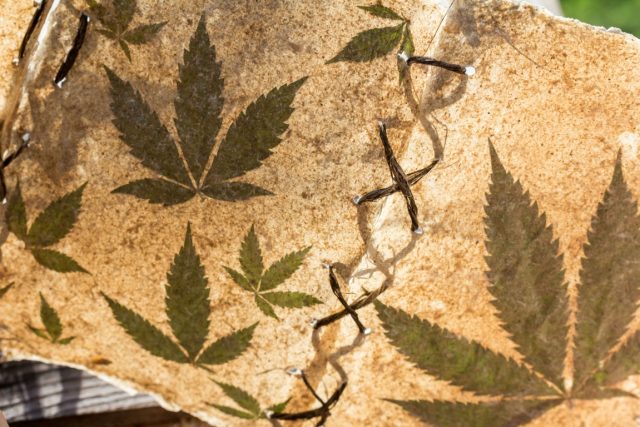
The cannabis plant has long been used to produce textiles, like paper, clothing and rope by humans for centuries.
In America, the marijuana plant was first grown in the form of hemp for textiles and rope during the early colonial period beginning in the 16th century. The word hemp is largely used to describe strains of cannabis that contain less than .03 percent of THC (the substance in marijuana that produces most of the psychological effects). The fibers from hemp were used to create clothing, paper, sails, food, rope, and many other common textiles. Since the hemp plant is easy to cultivate, is fast-growing, and has many uses it became widely popular. However, It wasn’t until the 20th century where political and racial factors ultimately led to the criminalization of the marijuana plant and its usage.
Despite marijuana’s recent history in pop culture, it has long been widely accepted that the marijuana plant has strong medicinal effects. It has been used for centuries by many ancient Chinese dynasties. In ancient times it was used to help treat many ailments, such as glaucoma and inflammation by the Egyptians, it has been used in India as an anesthetic, and even as a cure for leprosy.

Many christians enjoy the use of the cannabis plant for medicinal and recreational reasons.
Part of the pro-cannabis argument for Christians is the mention of what is known as “anointing oil” in several verses of the Bible. “Then the Lord said to Moses, ‘Take the following fine spices: 500 shekels of liquid myrrh, half as much (that is, 250 shekels) of fragrant cinnamon, 250 shekels of fragrant calamus, 500 shekels of cassia-- all according to the sanctuary shekel-- and a hin of olive oil. Make these into a sacred anointing oil, a fragrant blend, the work of a perfumer. It will be the sacred anointing oil” (Exodus 30:22-25). In their interpretation, calamus is translated into the Hebrew word for cannabis, ‘kenah-bosm”. Additionally, calamus is mentioned in several different verses of the Bible. In other interpretations, calamus is a semi-aquatic reed like plant which has been banned for production by many agencies including the Food and Drug Administration (FDA) for being toxic. So, many would have to speculate why God would call for the use of a poisonous plant in the sacred anointing oil which was used for healing and in ceremonial proceedings?
Additionally, there are several other verses of the Bible that are often cited for pro-marijuana believers. Most of which can be found in the book of Genesis; “And God said, ‘Behold, every plant yielding seed that is on the face of all the Earth, and every tree with seed in its fruit. You shall have them for food” (Genesis 1:29). “Every moving thing that lives shall be food for you. And as I give you the green plants, I give you everything” (Genesis 9:3). “The Earth brought forth vegetation, plants yielding seed according to their own kinds, and trees bearing fruit in which is their seed, each according to its kind. And God saw that it was good” (Genesis 1:12).

Many people argue some verses in the bible prove that marijuana has been used responsibly, even in biblical times.
Scientifically speaking, it is hard to deny that marijuana plants are anything but naturally seed-bearing vegetation. Throughout history, the marijuana plant has been used for various medicinal purposes, used as essential textiles, and for ritual or religious proceedings. It is easy to see why some Christians argue that the use of marijuana should be accepted within the religion.
With all the different interpretations that come from studying the Bible, combined with the negative stigma surrounding the use of marijuana, it is not difficult to see why many Christians are against the use of it. While some argue that the Bible doesn’t directly mention the marijuana plant itself, there are many verses that mention the sins of the flesh, “Let us walk properly as in the daytime, not in orgies and drunkenness, not in sexuality, immorality, and sensuality, not in quarreling and jealousy. But put on the Lord Jesus Christ, and make no provision for the flesh, to gratify its desires” (Romans 13:13-14).
For many Christians, the problem comes from the fact that marijuana is known to have psychoactive effects on the user, which could be translated as drunkenness. However, the use of alcohol is permitted in the Bible, and it is even practiced during several religious Christian ceremonies, such as drinking the blood of Christ. It would seem, then, that when the Bible speaks about drunkenness it is simply talking about consumption in moderation. The same could be said for the use of marijuana, as long as the user is practicing safe consumption.
Regardless of whatever you may believe, there are those who will support the decision that you will end up making in regard to the use of marijuana and whether or not you believe it is Christian. Speak with your local clergymen if you feel like you need a bit more personal guidance if you are feeling conflicted with this in any way. In my opinion, with the stigma surrounding marijuana lessening, more and more states across our nation are beginning to recognize not only the medical benefits of marijuana but the recreational benefits as well.
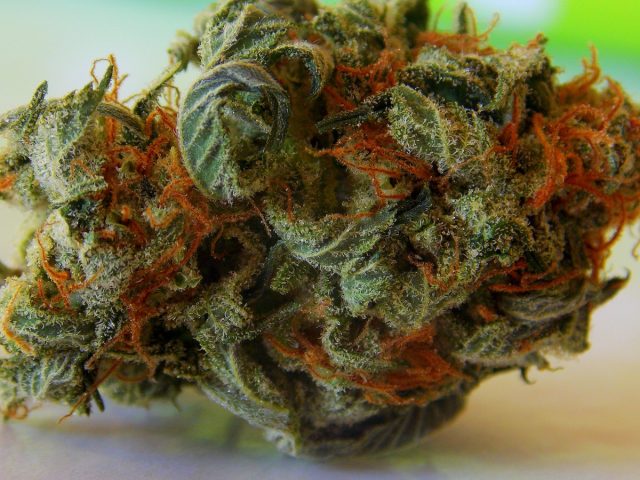
First and foremost, if you are in any immediate danger, please reach out to another family member or relative, friend, neighbor, emergency services, or another trusted source to remove yourself from the situation before it gets too bad. Maybe you know your parent uses heroin because you’ve found some needles or other drug related paraphernalia, if that is the case, do not attempt to dispose of them yourself, leave them alone and ask for help. I hope that by now you are at least in a safe enough environment to potentially get your parent(s) the help he or she needs.
Growing up in a family where one or more family members are struggling with a substance abuse disorder can have a very detrimental impact to your overall well-being and development, so at the very least, try to remove yourself (and any siblings) from the unhealthy environment, at least until it is a healthy situation again, but sometimes I know that just isn't possible. Either way, here are some additional steps you can take if you have recently discovered your parent is using heroin.

Growing up in a home with a parent who is using drugs can be a dangerous situation.
Before you try to take steps or confront your parent about their substance misuse, it is important to make sure that they are in fact struggling with addiction. While signs of addiction usually are based upon how much of a drug they consume and how often they do it, if you read through this list and are finding that you can check more than half of them off, you will probably want to start coming up with a plan of action for you parent and begin seeking treatment options.
If you have gone through this list and feel as though your parent is a drug abuser or heroin addict, then you must first try to understand addiction. Addiction is a disease of the brain that can chemically alter the brain's structure over time. According to the National Institute on Drug Abuse, addiction is a disease characterized by drug seeking and use that is compulsive, or difficult to control, despite harmful consequences. The initial decision to take drugs is voluntary for most people, but repeated drug use can lead to brain changes that challenge an addicted person’s self-control and interfere with their ability to resist intense urges to take drugs.
Drug addicted people have distorted thinking, behavior, and body functions. Long term changes in the brain's wiring are what cause people to have intense cravings for the drug and it makes it that much more difficult to stop using them. Brain imaging studies show changes in the area of the brain that relate to judgement, decision making, learning, and behavior control. By getting an understanding of what exactly your parent is struggling with and suffering from, we can be prepared for any outcome.

Many older adults become addicted to heroin as a result from a prescription for opioids from their doctor.
While finding out that a parent is addicted to heroin can be very alarming and unsettling, you must first try to get help for yourself first. Do your research and locate resources for yourself. There are 12 step support groups designed specifically for family and friends of addicts or alcoholics. You can attend Al-Anon, Ala Teen, or Nar Anon depending on your specific situation and what makes you feel most comfortable.
By now, I’m sure you know that addiction not only affects the user but everyone around them as well. So by making sure you are in the healthiest place possible, regardless of whether or not your parent is sober, will only help to guarantee that you continue to lead your healthiest life, even if they refuse to get help right now. Sometimes even just speaking to a therapist can help give us the extra support that we need.
Always approach someone in an active addiction with compassion, as they do not respond well to confrontation. I know that resentment and anger are sometimes at the forefront of your mind when it comes to an addicted parent, but you must remember they are sick. Expect there to be difficulties, they may deny that they have a problem, they may refuse to get help, or they may have so much guilt surrounding the subject that they won't even talk to you about it. Ask them questions about their drug use and let them know that you are concerned about them and their well-being.
If you’re speaking to your parent and they still refuse to get help, let them know you will be taking more steps in order to get them the help they need. Involve people you trust (family members, friends, coworkers, etc.), other people who care, and whose lives have also been affected by your parents' drug use.

Many young people in America have parents who are addicted to drugs like heroin or meth. Many children grow up in households where drug abuse is rampant for most of their childhood.
Staging an intervention is one of the most beneficial ways of getting a loved one the help or care they need to overcome their drug addiction. Enlist the help of a mental health professional or an intervention specialist because making sure the intervention goes the right way is essential to getting them the care they need. This will most likely include setting consequences for the addict if they chose to not get help and setting healthy boundaries between you and the addict if they refuse.
Most importantly, don’t blame yourself if you have tried everything and they still refuse to get help. We now know that addiction is a disease, and someone has to want to get help in order to change. Hopefully, by giving your parents consequences and removing all unhealthy boundaries, they will eventually be left with no choice but to get treatment. Either way, just know you are not alone, as research shows that 1 in 8 children will have grown up in a home where at least one parent suffered from a substance abuse disorder. Help is available, recovery is possible.
Addiction itself is difficult to deal with. It can be difficult to even admit to yourself and others that you struggle with a substance abuse problem. Addiction is a chronic and potentially relapsing disease that chemically alters the structure of the addicted person’s brain. It takes a life long commitment to overcome and maintain sobriety. Some people believe that addiction is a choice, while that may be true initially, as far as making the choice to use drugs or alcohol for the first time, an addicts brain is different than someone who is not an addict. Drugs and alcohol essentially trick the brain into believing that they need this substance in order to survive, and most will stop at nothing to get their drug of choice. An addict is sick, they have a disease of the brain that affects their ability to stop using drugs or alcohol, despite having negative consequences due to their drug use.
Congratulations, if you are here because you have moved from having an active addiction to actively participating in your sobriety. The first step is admitting that you have a problem and that you are powerless over drugs and alcohol. Why is it then, that it is so difficult to admit that we have a drug addiction to our friends or family? There are many reasons why admitting you have a problem to others may be more difficult than admitting it to yourself, but stigma and guilt are two of the main reasons why you may be having a hard time telling others.
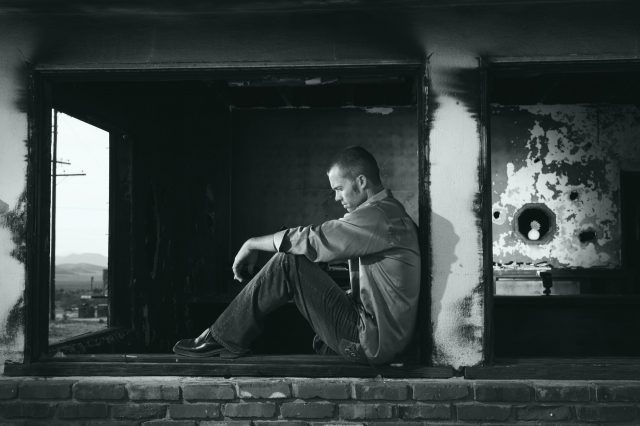
It can be difficult to admit your addiction to others. There should be no shame in asking someone who cares about you for help.
Perhaps the biggest reason of all would be the negative stigma surrounding the disease of addiction. Fear of jail time or other legal consequences is a major factor. For centuries, addiction has plagued many people from all walks of life, regardless of upbringing or social status. All too often, people who suffer from addiction are looked upon as though they lack some sort of moral fortitude or self-control, which is definitely not the case. As we know, addiction is a disease and a chronic sickness that requires treatment to manage, there is no cure, other than abstaining.
Guilt is one of the biggest emotions associated with addiction or drug and alcohol abuse. Perhaps you experienced some trauma as a child and that situation ultimately is what drives you to use, or perhaps you have done some things you aren’t exactly proud of while under the influence. Either way, it is not your fault. If you have completed any sort of addiction treatment program, then it is highly likely you have had the chance to work through some of the emotions that may have triggered your drug use, to begin with. There is nothing to feel guilty about, you are not the same person when in an active addiction, no one is.

Addiction can make you feel isolated. It is always a good idea to ask someone for help.
Maybe you are new to the recovery process, and have not yet gone through any sort of detox or treatment facilities, but are curious as to whether or not you may have a problem. Before you tell your family and friends, it may be wise to determine if you actually have a problem. If you are wondering though, then that most likely indicates that some level of care may be necessary to help with your substance abuse, but here is a list of addiction indicators to keep in mind;

Talking to your family and friends about your personal struggle with drugs is okay. You will be surprised how many will want to help.
If you have already come to the conclusion that you do in fact have a problem and whether its an alcohol addiction or other drug abuse, you do not have to hide the truth from your family or friends. If you do, it will eventually eat you up alive and result in an unwanted relapse because we aren’t being open with the people that are closest to us. There are many benefits to telling the truth, especially when it comes to having a substance use disorder. So, if you are like many other newly recovered addicts who are struggling to tell their family and friends, then here are a few tips to help you break the news.
All we can hope for is that our family in return will accept us with loving arms, and most of them should. If not, that's ok too, you cannot let it derail your sobriety and staying healthy for the long term. Build a strong support network at support groups like Alcoholics Anonymous or Narcotics Anonymous, there are meetings everywhere. If they do not accept you at first, hopefully, in time, with some sobriety under your belt they can begin to trust you again. Good job in making it this far!
Drug addiction and alcoholism are synonymous with each other in the fact that they both destroy lives, families, and the homes of those who suffer from them. Alcoholism is simply just being addicted to alcohol, which is a drug itself, whereas drug addiction is an addiction to pretty much everything else that is substance-related, such as heroin, methamphetamines, prescription pills, etc. Both drug addiction and alcoholism are substance use disorders, and unfortunately, both are very common, even with the unpopular views surrounding them. Perhaps to first understand what leads people to drug addiction, we must first understand exactly what drug addiction is, to begin with.
When a person is suffering from an addiction to alcohol or drugs, they have a disease of the brain. Addiction is a complex condition, it is a chronic, relapsing brain disease that is manifested by compulsive, uncontrollable substance use despite harmful consequences. It is a physical and psychological dependence on drugs or alcohol regardless of what harm may come to themselves or others. While the first time someone uses drugs or alcohol is usually voluntary, the repeated use of them leads to chemical changes in the brain that affects the addicted person's self-control and inhibits their ability to stop further alcohol abuse or drug abuse.

When drugs enter the system its acts on the same part of the brain that gives us feelings of pleasure, commonly known as the reward center. Drugs bring about the same response that you would experience while enjoying a delicious meal, listening to your favorite song, or the happiness you feel after sex. After using drugs, chemicals, such as Dopamine, are released inside the brain encouraging the user to take drugs or alcohol again. After a time, it begins to replace the brain’s natural response to normal stimuli, making it difficult for other experiences to compare. The brain's structure begins to change due to the repeated release of these chemicals, without a natural reward, and the person begins to need the substance in order to feel normal again.
After repeatedly sending signals to the brain that using drugs is a rewarding experience, the brain also learns to value the substance over those more natural rewards and will begin to associate certain places, people, or things with this new behavior. This makes it challenging to stay sober, even after they’ve stopped using since they are now being triggered by these learned connections to this rewarding feeling.
If you are unsure whether you or a family member may be suffering from a substance abuse disorder then here are a few key signs that what may have initially started as recreational use has now become a problem;
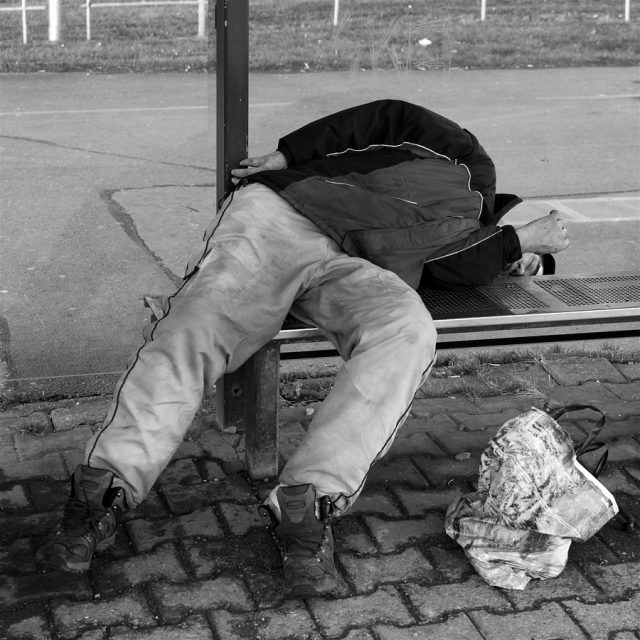
Unfortunately, there is no one determining factor on how to tell who will use drugs and alcohol and who will eventually become addicted to them. However, according to the National Institute on Drug Abuse, people begin using drugs for a variety of reasons, including;
Anyone can become an addict, even after using drugs just one time. No one responds to drugs in the exact same way and there is no way to tell beforehand who may or may not become addicted, but there are several risk factors that can increase the likelihood that someone will develop an addiction.

There are other environmental, biological, behavioral, and socioeconomic factors that can lead someone to become addicted to drugs or alcohol. Addiction is often a disease of emotion and what leads someone to try drugs is different for everybody, sometimes it is just better to be safe than sorry and to never try them at all. You will never be entirely sure that you won't fall to the clutches of addiction. If you are addicted, seeking treatment from a professional drug rehabilitation program is highly recommended.
It is never a good situation to be in when someone may have to wonder whether or not a family member is addicted to alcohol or drugs. However, if you do find yourself in this situation, just know that you are not alone, as nearly 21 million Americans struggle with an active addiction in our world every day, but more importantly, know that it is never your fault. When someone in your family abuses drugs or alcohol, it not only affects them but everyone around them as well. Their addiction can cause financial, emotional, physical, psychological, and environmental effects on the people who care about them the most. If someone in your family was suffering from an illness, such as diabetes or heart disease, most wouldn't hesitate on finding them help, the same goes for an addicted loved one.
Addiction is a brain disease characterized by the person's lack of self-control overusing drugs or alcohol, even though they most likely have experienced some severe and negative consequences, like losing their job or ending up homeless. It is a mental illness that often times requires addiction treatment from a mental health professional. The repeated use of drugs and alcohol alters the way their brain operates, so even though a loved one may express the desire to never use drugs or alcohol again, most of the time they are completely unable to make the decision to stop on their own. There is hope for recovery, though, here are a few steps you can take if a family member is showing signs of having substance abuse problems.

One of the first steps to take when you believe a family member is suffering from an addiction is to educate yourself on the topic. As mentioned above, addiction is a disease. The more we understand on the subject, and exactly what your family member is suffering from, the easier we can accept what comes along with it. It is not necessarily their fault that they are unable to stop using drugs or alcohol, they need help and the tools for recovery.
It is often said that addiction is a family disease because it affects not only the person suffering but everyone around them. Having a relationship with an addict can be very overwhelming and stressful. Reach out to support groups like Al-Anon/Ala-teen/Nar Anon (12 step support groups for family members and friends of people who have an addiction to drugs or alcohol).

It can be difficult to hide one’s resentment or anger from years of disappointment and hurt because of the addicted person's actions but it is important to remember that your family member is sick. When it comes to someone being in an active addiction, they are not themselves, they are under the influence of very powerful mood-altering drugs. Addicts do not respond well to confrontation, approaching them with loving-kindness will help them listen to what you have to say, instead of wanting to run the other direction.
Sit down with your family member face to face and let them know you are concerned that they are suffering from a substance use disorder. Remember to remain compassionate but expect difficulties, such as;
Have information ready and available, such as inpatient and outpatient programs if they do agree to get help. If they refuse treatment ask if they will consider going to a support group for addicts, like Alcoholics Anonymous (AA) or Narcotics Anonymous (NA). If they refuse and act with anger or hostility, just reassure them that you are concerned about their wellbeing and that you will be taking further action to get them the help they need.

Staging an intervention is one of the most effective ways of getting an addicted person help. An intervention is when friends and family members of an addict join forces together, with the help of a professional interventionist, in a carefully planned process to get someone to seek professional help for an addiction. An intervention typically includes these steps;
Get help from a professional and form a planning group of family members and friends, try to have a good mix of people.
Find out the extent of the loved ones' problem and research treatment programs and options for their specific problem.
Meet with the intervention team and decide on consequences (such as no more money or rides, they have to find a different place to live, no more contact, they can't see their children, etc.) if they decide not to get treatment. Make notes on specific times their addiction has caused issues in your life so that they can’t deny they have a problem.
Without telling the loved one why, have them meet the intervention team at the location and take turns expressing concern for the loved ones and specific times they have been hurt by the addict's actions. Each person goes over specific changes they will make and consequences if the person refuses treatment.
If the person still chooses to not enter treatment, follow up with specific changes and consequences. If the addict's way of life is taken away from them, they are more likely to get the help they need.

We hope that your loved one decides to get the help that they need, but setting healthy boundaries for yourself will only ensure that you are not enabling the addict to continue their behavior and that you are leading a healthy and fulfilling life.
Marijuana, also known by cannabis, weed, grass, shake, ganja, reefer, dope, hash, herb, chronic, and many other names, has a reputation for being a safe narcotic.
In reality, there are no 'safe' narcotics, and the potential for addiction to 'weed' (as it will be henceforth referred to) has well earned its place on the DEA Schedule 1 list of dangerous, addictive drugs. Let's read on to see just how weed can be addictive and habit forming.
"Don't Panic, It's Organic" one popular cannabis-related slogan reads. The 'Good Time' reputation weed has, due in part to its role in the burgeoning hippie movements of the 60s and early 70s, has led many substance abusers and addicts astray.
Popular TV shows and movies such as "That 70's Show" and "Harold and Kumar Go To White Castle" portray weed abuse as being, at worst, mildly intoxicating. Unfortunately, even casual marijuana consumption can permanently alter your brain chemistry.
The team found that persistent marijuana use was linked to a decline in IQ, even after the researchers controlled for educational differences. The most persistent users — those who reported using the drug in three or more waves of the study — experienced a drop in neuropsychological functioning equivalent to about six IQ points (PNAS, 2012). "That's in the same realm as what you'd see with lead exposure," says Weiss. "It's not a trifle."
https://www.apa.org/monitor/2015/11/marijuana-brain
Not a good time. Not a laughing matter. Yet, the most chronic 'chronic' users will deny addiction, even as they go for their bedside' wake and bake' (referring to getting high first thing in the morning after waking up).
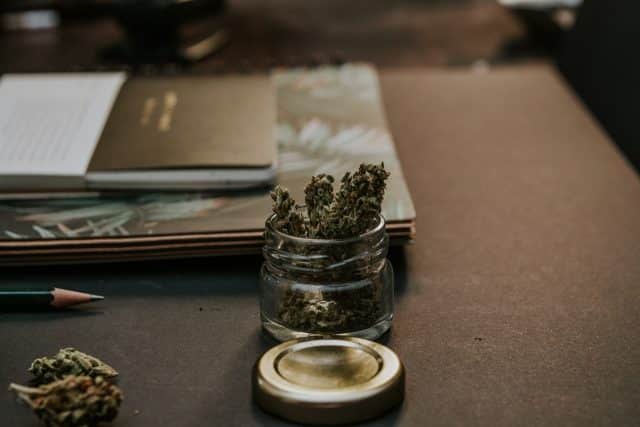
In a sense, weed is not addictive in the same way that heroin is. Your body does not develop a physiological need for it. However, the active ingredient in weed, Δ9‐tetrahydrocannabinol (THC), quickly invokes a resistance in the human body. More and more weed or weed products are needed to stay high.
What are some of the positive aspects of weed that encourage people to avoid withdrawal (and therefore, spur addiction?)
THC interacts with the reward system of your brain and dumps dopamine, much like harder drugs such as methamphetamine, cocaine, and others. This leads to a sense or feeling of euphoria and stress relief.
Weed allegedly can treat certain types of pain - a self-medicator dependent on weed may not want to get clean due to an injury or pain.
Weed can also interfere with the formation of memories, and the cessation of it may force an individual to deal with a trauma or other event that weed helped them to forget.
Other symptoms of withdrawal include diminished appetite, stomach or digestion issues, depression, chills, inability to focus on a task, sweating, headaches, rapid mood changes, irritability, insomnia or other sleeping disorders.
Many users will also experience intense cravings for marijuana, similar to the way a smoker craves a cigarette.

Marijuana use disorder becomes addiction when the person cannot stop using the drug even though it interferes with many aspects of his or her life. Estimates of the number of people addicted to marijuana are controversial, in part because epidemiological studies of substance use often use dependence as a proxy for addiction even though it is possible to be dependent without being addicted. Those studies suggest that 9 percent of people who use marijuana will become dependent on it,24,25 rising to about 17 percent in those who start using in their teens.26,27
https://www.drugabuse.gov/publications/research-reports/marijuana/marijuana-addictive
To summarize this excerpt, the 'use disorder' of weed becomes an addiction when you cannot force yourself to stop using it, despite having one or more compelling reasons in your life to do so.
According to DrugAbuse.gov, only 10% of people will become addicted, a much lower rate than heroin or methamphetamines. If that's the case, then why is it so important to reach out to and try to help marijuana addicts?

Paralleling the rise in marijuana use disorders, treatment admissions for primary marijuana dependence have increased both in absolute numbers and as a percentage of total admissions, from 7 percent in 1993 to 16 percent in 2003 (SAMHSA, 2004). The extent of marijuana use and its associated consequences clearly indicate a public health problem that requires systematic effort focused on prevention and intervention.
https://www.ncbi.nlm.nih.gov/pmc/articles/PMC2797098/
Even with a rise in the prevalence of treatment facilities and staff trained to handle marijuana addiction, it is the forgotten addiction. Individuals are far less likely to admit an addiction to marijuana than they would to say, heroin or amphetamines.
This is once again linked to popular depictions of marijuana in media and society as being a harmless narcotic, as opposed to the dangerous substance it is.
As an additional word of warning, the rise of THC oil products, such as "dabs," "wax," "shatter," and "budder," make it very easy to deliver massive doses of THC to addicts. THC concentrates in such products usually begins around 70%, or seven times stronger than a regular marijuana joint.
This super-dose of THC means that from the very first hit, the subject is already well on their way to developing an unfortunate resistance to THC.
Other products containing THC that addicts may utilize are soap, lotions, toothpaste, personal lubricants, candy, shampoo, and many others.
There is also a rise of THC being included in food items, such as brownies, cookies, and other foodstuffs.
Consult with a doctor or addiction expert before starting a recovery journey from marijuana. Like all narcotics, it can be an arduous process, but the payoff is absolutely worth it.
Yes, someone can be addicted to weed. While marijuana is often perceived as less addictive compared to other substances, it can still lead to dependence, especially with heavy or prolonged use. Individuals may experience withdrawal symptoms and find it challenging to quit despite negative consequences.
Marijuana addiction can impact daily functioning and overall health by affecting cognitive abilities, emotional regulation, and motivation. It may lead to difficulties in maintaining responsibilities at work, school, and in personal relationships. Additionally, long-term use can have health consequences, including respiratory issues and potential mental health effects.
Treatment options for individuals struggling with marijuana addiction typically include therapy, counseling, support groups, and in some cases, medication. Cognitive-behavioral therapy (CBT) and motivational enhancement therapy (MET) are commonly used approaches to address addiction-related behaviors and motivations. Support groups like MarijuanaAnonymous can also provide peer support and accountability. Additionally, medications maybe prescribed to manage withdrawal symptoms or co-occurring mental health conditions.
Several risk factors can increase the likelihood of developing a dependency on weed.Genetics play a role, as a family history of substance use disorders or addiction can predispose individuals to marijuana dependency. Early initiation of marijuana use, especially during adolescence, is associated with a higher risk of dependence.Environmental factors such as exposure to peer pressure, easy access to marijuana, and social norms supportive of drug use can also contribute to dependency. Additionally, individuals with co-occurring mental health disorders like depression, anxiety, or trauma may be more susceptible to marijuana dependency as a form of self-medication.Chronic stress or trauma can further increase the likelihood of using marijuana as acoping mechanism, potentially leading to dependency over time.
Addicts may disappear for various reasons, often related to their struggle with substance abuse and the accompanying challenges. One common factor is relapse, where individuals return to drug use and retreat from their usual surroundings, sometimes feeling overwhelmed by shame or guilt. This desire to avoid confrontation or pressure to seek treatment can drive them to isolate themselves, compounding feelings of isolation and hopelessness.
Additionally, addicts may disappear to seek out drugs or engage in drug-related activities without interference, reflecting a prioritization of substance use over other aspects of their lives. Co-occurring mental health issues, such as depression or anxiety, can exacerbate these tendencies, leading individuals to withdraw further from social support systems. In some cases, addicts may also vanish to evade legal repercussions or escape unsafe environments associated with their addiction. These reasons underscore the complex interplay between addiction, mental health, and external pressures that can contribute to an individual's disappearance.
If a loved one battling addiction goes missing, it's crucial to act swiftly and effectively. Begin by contacting local hospitals, jails, and homeless shelters to inquire about their whereabouts.Reach out to mutual friends or acquaintances who may have information, and consider filing a missing person report with law enforcement. Utilize social media and community networks to spread the word and solicit assistance in locating your loved one. Additionally, consider seeking support from addiction treatment centers or support groups for guidance and resources in your search efforts. Time is of the essence, so take proactive steps to locate your missing loved one and ensure their safety.
When a loved one who is struggling with addiction goes missing, there are significant risks and dangers to consider. They may be at heightened risk of experiencing harm or injury, particularly if they are engaging in high-risk behaviors associated with substance abuse.Without access to necessary medication or treatment, they may face health complications or exacerbation of existing medical conditions. Additionally, individuals who are missing and battling addiction may be vulnerable to exploitation or victimization, including involvement in criminal activities or becoming victims of violence. Furthermore, their absence can cause immense emotional distress and uncertainty for their loved ones, compounding the already challenging circumstances of addiction. Prompt action and effective communication with authorities and support networks are essential to mitigate these risks and ensure the safetyand well-being of the missing individual.
Dealing with the stress of a loved one's disappearance, especially when they are struggling with addiction, can be overwhelming. It's essential to prioritize self-care and seek support from others during this difficult time. Engage in activities that promote relaxation and stress relief, such as exercise, meditation, or spending time in nature. Lean on your support network of friends, family, or support groups who can offer empathy, understanding, and practical assistance. Additionally, consider seeking professional counseling or therapy to process your emotions and develop coping strategies.
For other family members, encourage open communication and mutual support as you navigate this challenging situation together. Establish boundaries to manage expectations and avoid burnout, and remember that it's okay to ask for help when needed. Stay informed about the progress of the search efforts while also allowing yourself and others time to grieve and process emotions. By taking care of your emotional well-being and fostering a supportive environment for your family, you can better navigate the stress of your loved one's disappearance and support each other through this difficult time.
Drug addiction can happen to anyone at any time. Luckily, there are identifiable risk factors for high-risk individuals and even yourself.
There are two types of major risk factors: biological and environmental.

The first and primary risk factor for addiction is family history or genetics.
Both genetic and environmental variables contribute to the initiation of the use of addictive agents and to the transition from use to addiction. Addictions are moderate to highly heritable. Family, adoption and twin studies reveal that an individual’s risk tends to be proportional to the degree of genetic relationship to an addicted relative.
https://www.ncbi.nlm.nih.gov/pmc/articles/PMC2715956/
Simply put, if your father or mother was an addict, there are good odds that you have a predisposition towards addiction. It doesn't have to be a direct family member, however. Look to you or the subject's family tree - how far back can addiction be identified, if at all?
The metabolism of an individual defines how easily they process and utilize substances. Think about a coworker or friend who can have one cup of coffee and receive a great effect from the caffeine, while other individuals you know who drink the same dosage can barely get out of bed.
Individuals who process substances more slowly (a slower metabolism) will require less of the substance to receive the same effect, meaning they will re-dose more slowly, and they will be less likely to develop an addiction.

Men are more likely to become addicted to substances than women.
Typically, men are more likely to abuse illicit drugs and alcohol – 11.5% of males over 12 have a substance use disorder, compared to 6.4% of females. However, women are more likely to go to the emergency room or fatally overdose due to substance abuse.
https://www.addictioncenter.com/addiction/differences-men-women/
There are a variety of reasons for this, some physiological, some sociological.
The method of ingestion of a substance can play a role in susceptibility to addiction. Injecting, insufflating (snorting), or smoking a substance helps it immediately enter your bloodstream and go straight to your brain. This is a more instant gratification than, say, digestion.
There are a variety of substances and a variety of factors that make them addictive. Methamphetamine and cocaine cause an instant spike in dopamine, making them very powerful and addictive substances. Opioids directly interact with your opioid receptors. The American Society of Addiction Medicine has stated that nearly ¼ of people who try heroin for the first time become addicted.

Children whose parents are less involved in their life are at a higher risk for addiction. Family difficulties, such as dysfunction, divorce, or infighting, can also play a factor. This adds to another category below - stress.
Stress, simply put, is your body's reaction to a negative stimulus, whether that is environmental, physical, or psychological. It is also one of the key factors in developing an addiction. Stress experienced at early developmental stages can alter your genetic makeup and keep you in a high state of stress for life.
Many drugs have a sedative effect on them, allowing an addict to self medicate against stress. Stimulants such as amphetamines and cocaine release dopamine, even if they do not reduce your heart rate or mania.

Who is the individual spending time with? Distinct risk factors for addiction involve merely being around others who use or sell substances. Less obvious factors include interacting with or only being around individuals who cause stress. Being around individuals who remind you of a bad experience or place can also trigger cravings for substances.
Research has proven that the earlier an individual begins using substances, the more likely they are to have an addiction.
Individuals who used cannabis by age 17 years had odds of other drug use, alcohol dependence, and drug abuse/dependence that were 2.1 to 5.2 times higher than those of their co-twin, who did not use cannabis before age 17 years. Controlling for known risk factors (early-onset alcohol or tobacco use, parental conflict/separation, childhood sexual abuse, conduct disorder, major depression, and social anxiety) had only negligible effects on these results. These associations did not differ significantly between monozygotic and dizygotic twins.
https://www.ncbi.nlm.nih.gov/pubmed/12533121
Substance addiction can arise from the most simple of circumstances to the most complicated. Homelessness is a significant factor in addiction.
Although obtaining an accurate, recent count is difficult, the Substance Abuse and Mental Health Services Administration (2003) estimates, 38% of homeless people were dependent on alcohol and 26% abused other drugs. Alcohol abuse is more common in older generations, while drug abuse is more common in homeless youth and young adults (Didenko and Pankratz, 2007). Substance abuse is much more common among homeless people than in the general population. According to the 2006 National Household Survey on Drug Use and Health (NSDUH), 15% of people above the age of 12 reported using drugs within the past year and only 8% reported using drugs within the past month.
https://www.nationalhomeless.org/factsheets/addiction.pdf

Other factors can be as simple as repeated prescriptions for pain management, and students/career workers taking stimulants to stay competitive. Certain occupations such as truck drivers, oilfield workers, and fishermen that work long hours and require a high state of vigilance have higher than average rates of abuse and addiction.
There is no fool-proof way to evaluate who will become an addict and who will not, but these guidelines are some of the many possible risk factors. There are many other risk factors, and consulting with an addiction professional can shed insight on other potential stressors that can contribute to addiction.
Convincing an addict to get help can seem extremely frustrating and confusing. Each person is different, and this is undoubtedly true with addictions, as well.
You may have asked a loved one with an addiction to get help in the past, and received a response such as, “I’m fine”, or “It’s not a big problem”. Many times, an addict will even tell you they haven’t used drugs in months or years, even if it isn’t true.
Since each person and addiction is different, there isn’t a one-size-fits-all solution to this question; however, there are some helpful tips you can employ, which could make all the difference.
Enabling and helping are two very different yet easy to confuse things. Enabling an addict means helping to provide for their addiction. This can involve multiple different scenarios, such as:

The main difference between enabling and helping is whether your efforts aid their addiction or bring them away from it.
For example, you can still provide a place for an addicted loved one to live on the condition that they maintain a full-time job.
You can still support an addicted loved one by buying them groceries instead of giving them cash.
The main gist of this situation is shifting your focus in order to see how you can help without enabling their addiction.
One behavior to watch out for is multiple helpers. One common behavior of someone addicted to drugs is to reach out to old connections or friends asking for help. They will generally ask for cash, a place to live, etc..
Addicts tend to hide this behavior and make it feel like you are the only one they are reaching out to in order to guilt you into giving them money, which only fuels their addiction.
One of the most important things you can do is ensure that an addict has a person to reach out to. One of the most effective and helpful solutions for someone battling addiction is to have a support “buddy” or someone they can turn to for help when they are feeling intense cravings for their addiction.

This means that if they are feeling the urge to indulge in their addiction, they will instead call you or spend time with you in order to interrupt that thought or action.
It’s important to make it well known that this is something you are comfortable with, as many addicts fear either being judged by you or feel like they are wasting your time.
Don’t reprimand them when they call for help; instead, show them love and support. An addict who is reaching out for help already know they have a problem, the last thing they want to hear is negative comments about their addiction.
A rehabilitation center is an excellent option for anyone struggling with chronic addiction. Many addicts are hesitant to go, as they often fear what will happen and have no idea what a rehab center is actually like.
Sit down with them and have an honest conversation about their needs and what their current and future plans are.
Many addicts only think in the moment, so flushing out a 1-year plan can help them feel the initial motivation they need to attend rehab and get clean.
One of the most helpful practices for someone who is unwilling to go to rehab is to sit down and research it together. Start off by looking for rehab centers in your area. Read reviews, check out their websites, and ask questions about their programs and daily schedules.
Many times, a fear of the unknown is the main obstacle that gets in the way of someone seeking help. It’s important to know that no one is going to judge or ridicule you for having an addiction at a rehab center.
Rehab centers are meant for people who are struggling with addiction, so don’t feel embarrassed or unsure, no matter what your addiction is they have both seen and treated it.
One of the most important things you can do to help an addict is to help them find a purpose. This is extremely important for anyone just coming out of rehab but applies to anyone battling addiction.
Finding a purpose is something that should consume your time and motivate you. It doesn’t have to include a goal, but oftentimes a goal is very helpful in this process.
For example, maybe the person struggling with addiction has been working in retail and wants to learn how to program. They then set a goal to spend 4 hours a day pursuing this, with the end goal of getting a junior-level programming job within a year.
Whatever the purpose may be, it’s important that it’s something they have an extreme interest or desire for. It’s important to cultivate and encourage this desire so that it grows within them, keeping them busy and providing another outlet for their time besides drugs.

It’s just as important to avoid negative experiences as it is to provide positive experiences. Drug cravings are often brought on by disappointment, anger, failure, or stress. Avoiding these situations as much as possible will help to prevent relapses.
Do everything in your power to be supportive and not negative. Even if your loved one has a relapse, stay positive and encourage them to keep moving forward. If you show anger, an addict will be less likely to trust you moving forward, and may not tell you when they need help.
Overall, it’s important to be patient and mindful when dealing with anyone who is struggling with addiction. Do everything you can to be a helpful lifeline, but avoid negative emotion and enabling behaviors.
Drugs are often associated with a decline in quality of life, but to what degree? You’ve probably heard of people losing their homes, friends, family, and jobs, and may be wondering if this is true for every drug addict.
We talked to former drug addicts, did as much research as possible, and feel qualified to tackle the topic of how drugs can affect your quality of life.
While we could just say that drugs affect almost every aspect of your life, it feels important to break the topic down into smaller pieces and really dig into how drugs affect them.
Below you’ll find a list of categories commonly affected by drug addiction that we’ll touch on today.
The list above does not encompass every aspect of life affected by drugs but does cover the most important and common categories of life that are affected.

Family life is one of the most impacted aspects of life for an addict.
Finances may not be the very first thing you think of when thinking of drug abuse; however, they often play a major role in a drug addicts’ life.
The first few times you use illegal drugs, you might not think it’s a big deal and might spend less than $100 total. At this point in time, it seems harmless financially. Everyone has hobbies and $100 every couple of weeks isn’t so bad for a new hobby that makes you temporarily feel good.
The problem is that almost all drugs have a tolerance effect. This means that you need to take more of the drug at a higher dosage in order to feel the same effects. Pretty soon, the $100 every two weeks you were spending on drugs becomes $100 every few days. Before you know it, you’re blowing through your savings, and spending thousands of dollars a month on drugs.

A drug habit can become very expensive to maintain.
At this point, you may realize that you can’t keep this up any longer. This is where most people turn to either crime or harder drugs.
Harder drugs like heroin can be much cheaper than something like prescription pills that you might have started on.
The allure of feeling that same type of “high” while saving money often leads people to start using these harder drugs, and unfortunately, the exact same cycle continues to occur.
At first, using illegal drugs may not seem like a big deal. Many people think that they can hide their drug choices from their friends and family, but it frequently doesn’t last long.
As drug addiction increases, the need for money increases as well. You may start asking friends and family for money without being able to pay them back.
Using drugs will also become the number one priority in your life, coming before even family and friends.
You will have to lie to your family and friends in order to keep them from finding out why you’re not spending time with them. They will also start to wonder why you’re asking to borrow so much money.
Unfortunately, drug addiction often causes you to care more about getting high than spending time with friends or loved ones.
This leads to degraded relationships and even anger among friends and family.
Using illegal drugs and being able to keep your job may seem plausible at first, but as your drug addiction becomes stronger and stronger, your job will become less important to you. It becomes more about just getting through the day so you can get home and get high.
You might start to slack off at work or start leaving early. It may also be tempting to get high while at work to make the time pass faster.
If your workplace administers drug tests, you could fail and lose your job. No matter which way you look at it, drug addiction will eventually catch up to you, making you lose or quit your job.

Job performance can suffer greatly during an addiction to drugs or alcohol.
One of the most important yet often overlooked aspects of drug abuse is its effects on your physical and mental health.
When people think of drug abuse health effects, they often only think of physical risks, such as heart attack, stroke, and blood pressure changes.
Illegal drugs can also cause potent and hazardous mental health issues, as well. It’s not uncommon for drugs to cause mental health issues such as depression, anxiety, hallucinations, and suicidal ideations.
These mental health risks can be especially heightened if you already have existing mental health problems.
Besides the mental health effects drugs directly cause, the loss of family, friends, money, and physical health are more than enough to cause depression and other mental issues.
Once you become heavily addicted to drugs, everything else takes a back-row seat, and sometimes even ceases to matter altogether. When all you want to do is get high every day it’s hard to have goals, priorities, and ambition in life.
Things such as relationships, money, work, goals, health, and education cease to be important. Lifelong goals take a backseat and are not worked towards anymore.
Time is wasted and goes by quickly, as once you are heavily addicted to drugs, you often take such a high dose that you are unable to normally function.

During an addiction, everything takes a back seat to your drug use.
Although becoming addicted to drugs is very real and very serious, it doesn’t have to be something that you struggle with for the rest of your life. There are many places to get advice on drug addiction treatment help, which really works. In addition to this, if you find yourself tempted or pressured into using illegal drugs, make sure to stop now, before things get worse!
It’s 100% possible to break free from drug addiction, so if you or a loved one is affected by drug addiction stay strong and don’t give up hope!